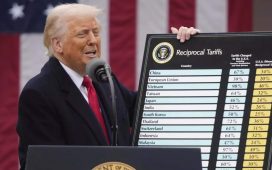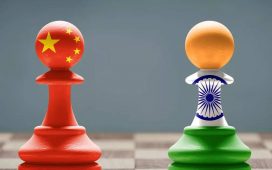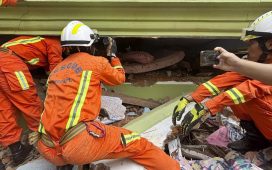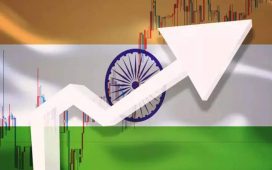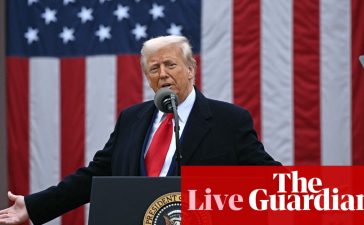
Hessler returned to China in 2019 to teach at Sichuan University-Pittsburgh Institute. This time, all his nonfiction writing students came from cities, and some of the women in his class were even taller than he was. A couple of students wore retro Air Jordans that cost hundreds of dollars.
The changes he observed reflected how, in a generation, China had transformed. The country’s population flipped from 70% villagers to two-thirds city dwellers. Economic output per person rose twentyfold, according to the World Bank. A 2020 study in The Lancet, a medical journal, reported that, of 200 countries, boys in China had the largest increase in height from 1985 to 2019, while Chinese girls had the third largest.
But the political system that defined society had not changed one bit, Hessler writes in his new book, “Other Rivers: A Chinese Education.”
“I still taught next door to the College of Marxism, and the university still hosted old-school communist rallies,” he writes. “How could a country experience so much social, economic and educational change, while the politics remained stagnant or even regressive?”
That question also puzzles many Chinese people, foreign policymakers, academics and journalists, including me. In “Other Rivers,” Hessler calls his students from the mid-1990s the “reform generation.” They believed in competition and were largely rewarded for their hard work. He calls his students from the 2020s the “Xi generation,” after Xi Jinping, the leader who has tightened the leash on all areas of Chinese society. They are willing to work hard, just like the students before them, but have few illusions about the system or their own future.
In “Other Rivers,” Hessler doesn’t provide a resounding answer to his question. But he believes that now, more than at any other time in his nearly three decades writing about China, something fundamental about the country’s political system must change. Young people are increasingly dissatisfied, he said, but they are not ready to try to initiate a change. They know the price people pay for defying the system, and the payoff for going along — even as the payoffs are becoming harder to come by.
In addition to two teaching stints in Sichuan, in southwest China, Hessler worked as the Beijing correspondent for The New Yorker in the 2000s. He has written five books about China, three of which have been translated into Chinese. “Other Rivers” has little prospect of being published in China because of its criticism of the government, and Hessler said his previous books would not be published in China now.
Nevertheless, “Other Rivers” is one of the most anticipated new books in the country.
Hessler, practically a celebrity in China, is known for his perceptive observations and empathetic portrayal of ordinary people, whom he describes as diligent, tough, pragmatic and, for the most part, apolitical. “Compassion” is a word Chinese readers use to talk about his work. His writing “transcends the binary of yes or no, like or dislike,” a well-known Chinese writer commented on his debut book, “River Town.” That book, published in 2001, recounted his experience teaching English in small-town China as a Peace Corps volunteer.
But in an increasingly polarized world, Hessler and his writing face more criticism inside and outside China. He is labeled both pro-China and anti-China, for being too political and for dancing around politics.
Some nationalistic Chinese, known as “little pinks,” said he was reflexively critical in an article he wrote for The New Yorker about the COVID-19 pandemic in March 2020. When he published another report five months later, about China’s effective control of the outbreak, some fellow Western journalists and China specialists branded him an apologist for the Chinese government.
Hessler and his family moved back to the United States in 2021 after his teaching contract was not renewed. He didn’t experience the brutal “zero COVID” restrictions that the Chinese government imposed in 2022: frequent testing, lockdowns, quarantines, food shortages and denial of medical treatment.
In an article on the website China File late last month, he responded to criticism, writing that he was unfairly judged, especially by other China experts who had left the country. After many American journalists were expelled in March 2020, he became part of a smaller press corps. He felt that he was still in the game, he told me in an interview on my podcast last month, “while the rest of the former players became sports commentators, nitpicking.”
Some of Hessler’s Chinese critics said his meticulous descriptions of average citizens in “River Town” and other early works faithfully reflected the pulse of that time, when China was more open and people were trying to adapt to fast-paced changes. But in the Xi era, they said, they wished he would address politics more directly. In China today, politics has caught up with nearly everyone.
That’s not how Hessler sees his role. Trained as a fiction writer, he told me, he was more interested in the people and places than in the issues. “The politics is part of it,” he said. “But I almost never start with an issue.”
I wondered if his approach in “Other Rivers” might have been different if he had stayed in China until the winter of 2022. Protesters came out in Chinese cities, including in Chengdu, where he had lived, to demand that the government stop its “zero COVID” policy. Some angry demonstrators called for Xi to step down.
In “Other Rivers,” Hessler writes that his young students, whom he kept up with through email and surveys, were angry about the lockdowns, which they often described as having fundamentally altered their perspectives.
A young man wrote to him from Europe: “Most significantly, it has changed my opinions about ‘revolt’ and ‘demonstration.’ I think Chinese should more often seek their rights through demonstrations, even though demonstrations in China have been equated with ‘revolt.'”
Most of Hessler’s younger former students were focused on personal concerns like job opportunities, not politics or climate change, Hessler reports in “Other Rivers.”
“You often hear that a lot of people say: ‘We don’t need to have democracy. We just need to have a little more space and not so much pressure.’ But maybe it doesn’t work like that,” he told me. “Once you break that and you don’t know what’s coming next, or when it’s going to come, then you’re going to create instability.”

